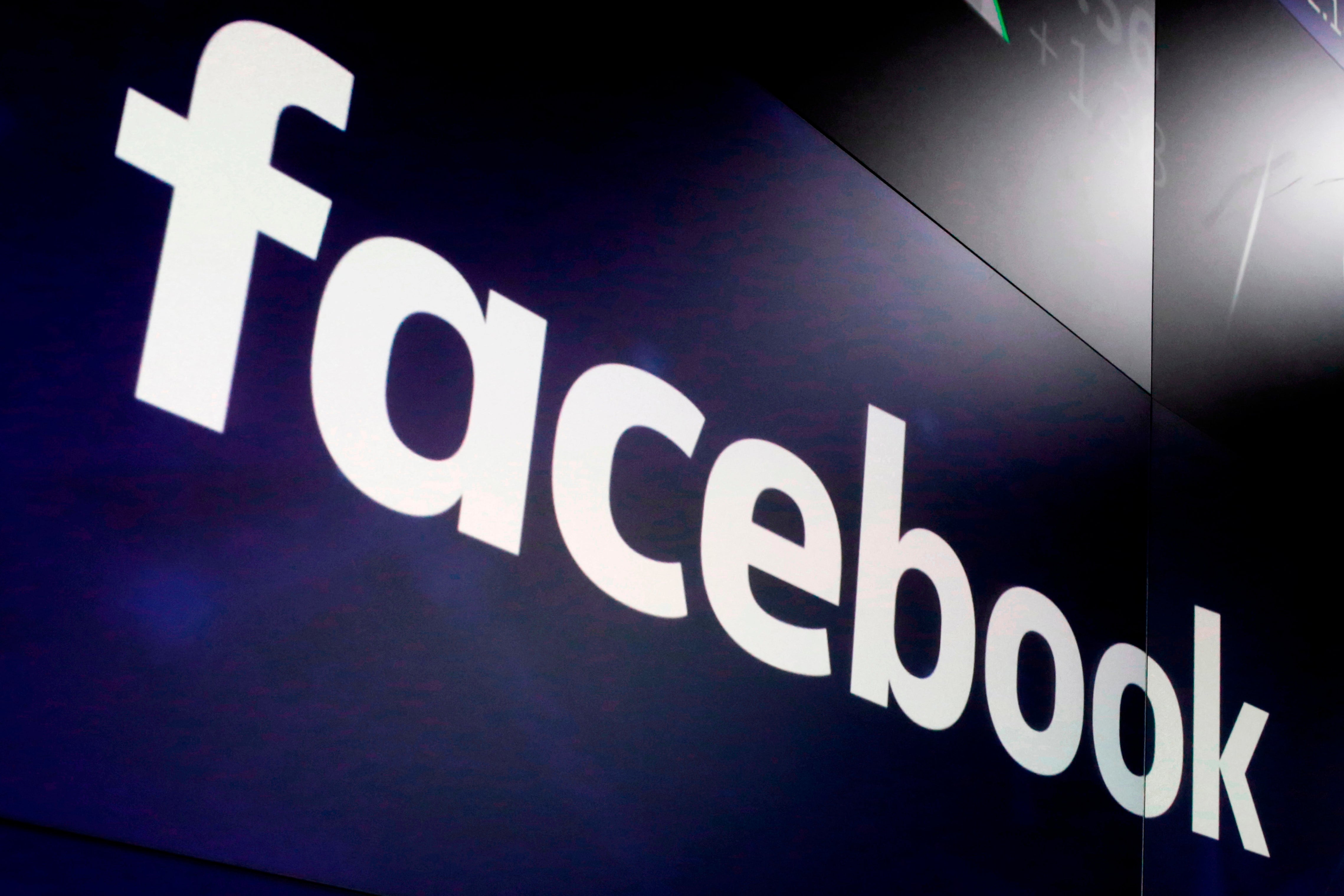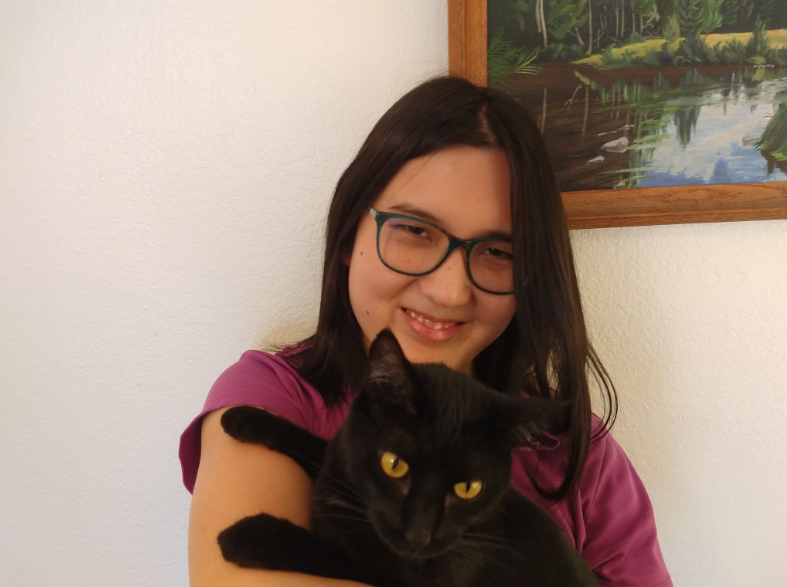Facebook whistleblower says she is being blocked from testifying in Indian parliament
‘It has been 13 months since I came forward publicly... that is more than enough time for anyone to provide a simple yes or no answer’

Your support helps us to tell the story
From reproductive rights to climate change to Big Tech, The Independent is on the ground when the story is developing. Whether it's investigating the financials of Elon Musk's pro-Trump PAC or producing our latest documentary, 'The A Word', which shines a light on the American women fighting for reproductive rights, we know how important it is to parse out the facts from the messaging.
At such a critical moment in US history, we need reporters on the ground. Your donation allows us to keep sending journalists to speak to both sides of the story.
The Independent is trusted by Americans across the entire political spectrum. And unlike many other quality news outlets, we choose not to lock Americans out of our reporting and analysis with paywalls. We believe quality journalism should be available to everyone, paid for by those who can afford it.
Your support makes all the difference.When Facebook whistleblower Sophie Zhang said she had evidence exposing how the social media giant had allowed India’s ruling Bharatiya Janata Party to “manipulate” public discourse, she expected democratic institutions in the country to be interested in what she had to say.
But more than a year after she made her findings public, and six months since a formal request was raised with the speaker of the lower house of India’s parliament (the Lok Sabha) to let her testify about these claims, Ms Zhang says she has not heard back from anyone.
She made headlines around the world in September 2020 by revealing how governments and third-party actors use fake accounts, or bots, on Facebook to sway the political mood of the public in different countries, including India.
After she was fired from Facebook in 2020, Ms Zhang published two articles in The Guardian detailing her fallout with the company. Her articles in April 2021 claimed that Facebook is easily exploitable by those hoping to interfere in elections, and accused the company of sitting on its hands unless the actions directly hurt its bottom line.
Her exposé included a huge warning for India, where the fake engagement activities appeared to involve most of the major political parties but where, she says, the ruling BJP was the only party that Facebook was “scared” of acting against.
She says she waited for the Indian system to take its own course of action as a sign of “deep and abiding respect for India’s laws and institutions” before “airing their dirty laundry in the open”, but that she never heard from them.
The data scientist turned whistleblower tells The Independent that she now feels her testimony in parliament is unlikely to take place. And so, finally, she has decided to speak up again.

“I can’t read the honourable speaker’s mind,” says Ms Zhang. “But I do not expect him to provide his consent at this point.
“It has been 13 months since I came forward publicly, and six months since the Lok Sabha [the standing committee on communication and information technology] voted unanimously to invite me,” she says. “That is more than enough time for anyone to provide a simple yes or no answer.”
Ms Zhang adds that the silence is “effectively an answer”, and that answer is “no”. Opposition figures in India have interpreted the delayed response as an attempt to protect the ruling party, of which Lok Sabha speaker Om Birla is a member.
Neither the office of the speaker nor the BJP responded to a request for comment from The Independent.
While working for Facebook between 2018 and 2020, Ms Zhang was what she describes as a low-level employee of the team tracking bot accounts on the platform.
Ms Zhang says the potential abuse of fake engagement by political parties wasn’t part of her responsibility as a junior employee – “It was much above my pay grade.”
However, she says she put in extra hours to identify networks that were influencing democracies around the world and moved to alert the platform of their misuse.
She found political manipulation networks in 25 countries, including Honduras, Azerbaijan, and India. Although it took many months, Facebook did eventually act against these networks in most countries, sometimes at the cost of angering their governments.
However, Ms Zhang witnessed the biggest apprehension from Facebook in acting against one particular network in India.
“In November of 2019, I first raised to my managers that I had found several networks of fake accounts benefiting Indian politicians,” Ms Zhang says. “I found an eventual total of five separate networks of fake accounts across the political spectrum, two supporting the INC [Indian National Congress, the main opposition party], two supporting BJP, and one supporting AAP [Aam Aadmi Party].”
She says Facebook was relatively quick to approve the removal of networks associated with the INC, AAP and one pro-BJP network, but it was apprehensive to take action against a second pro-BJP network involving 54 bot accounts once it “discovered that some of them were being run by a sitting member of parliament” from the BJP.
“When I alerted FB to the existence of an IT cell associated with the page administrators of multiple INC MLAs, FB leadership was immediately consulted and a takedown approved within 8 hours without waiting for my notice,” Ms Zhang says.
She adds that when she contacted Facebook’s India public policy manager flagging a network of inauthentic accounts associated with AAP, the person described the case as the AAP “trying to imitate the BJP and beat them at their online game” [screenshot below], and indicated that “the BJPs online armies are more in number”.
Ms Zhang told The Independent that she spent months chasing up on her request to take down this network, but Facebook did not respond. However, later in 2020, Ms Zhang was called in for a meeting with HR and told that her performance had been “unsatisfactory”, and that she was being fired.
Ms Zhang responded in a widely circulated 7,800-word memo, which she says was leaked. In it, she alleged that the company’s self-interest and greed prevented it from making proactive decisions about the protection of democracy, something several Facebook whistleblowers have alleged in the past.
Eventually, when she went public with her revelations, Facebook claimed that they had acted against the network.

Facebook did not respond to The Independent’s request for comment. But it has denied Ms Zhang’s claims in the past.
Joe Osborne, a spokesperson for the social media site, said in 2021 that it “fundamentally disagreed” with Ms Zhang’s characterisation of its priorities and efforts to root out abuse on the platform. “Combatting coordinated inauthentic behaviour is our priority.”
Facebook operations in India are characterised by disorganisation and lack of interest and are not focused on protecting the health of Indian civic discourse any more than Union Carbide was focused on protecting the poor people of Bhopal
Exasperated by the lack of response from the speaker as well, Ms Zhang has now made all the evidence she has public, naming this second pro-BJP network as being associated with the personal account of Vinod Kumar Sonkar, a BJP MP and the current chair of the parliamentary committee on ethics.
Shashi Tharoor, chair of the Lok Sabha standing committee on IT and an MP from India’s Congress party, raised a request to let Ms Zhang testify in November 2021.
He said that he had sought permission to allow Ms Zhang to depose before the panel in parliament since in-person testimonies by witnesses from outside India require the consent of the speaker of the house.
However, sources in the committee say that despite repeated reminders, they have received no response from the speaker’s office. They say attempts to have Ms Zhang testify via video conferencing failed as this would require a change in parliamentary rules.
According to experts on parliamentary procedures, the delay in addressing the matter of Ms Zhang’s testimony could be due to several factors, but such requests are usually tended to promptly.
“Every committee [of the parliament] is in existence for a year,” says Mansi Verma, a lawyer and found of Madhyam, a civic engagement initiative.
While there is no strict timeline for such procedures, “it is generally understood that anything a committee has taken in its terms should reach a logical conclusion [in that period]”, she says.
For Ms Zhang, the main issue at stake here is not the alleged abuse of fake accounts by one politician, but Facebook’s lack of will to stop such misuse of its platform.
Ms Zhang says India is an important focus for Facebook given its expansion goals, but it is yet to get its priorities right in the country.
“Facebook is prioritising India but not in the way Indian people would want it to,” she says. “It is prioritising the Indian government, not the Indian people.”
Join our commenting forum
Join thought-provoking conversations, follow other Independent readers and see their replies
Comments